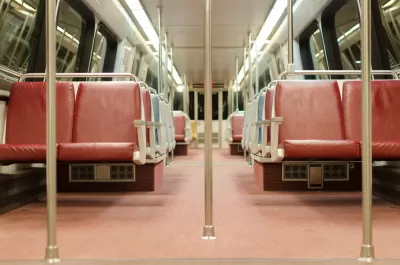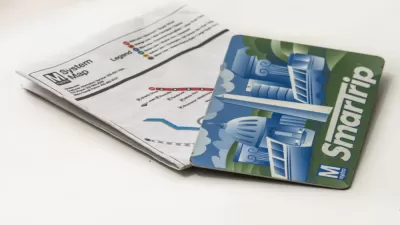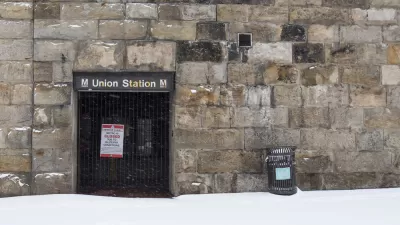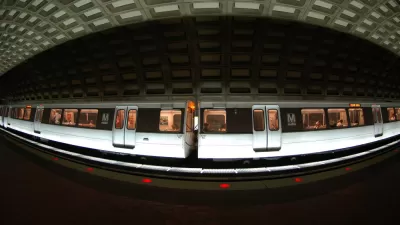At transit agencies like D.C, Metro, bad ridership projections beget bad fare scheduling which begets bad budgets. And so on.

The Washington Metropolitan Transit Authority's well documented challenges with maintenance and ridership are further complicated by inaccuracies in the region’s travel forecasts, according to an article by Martin Di Caro.
Bad projections, according to Di Caro, breed "unreliable budgeting and eroding confidence that Metro’s leaders have the best data possible to manage the current ridership losses."
Metro recently announced a fare increase, but it "remains unclear where Metro’s ridership and fare revenue need to be to avoid annual debates over fare hikes and service cuts," according to Di Caro. A report by Metro's inspector general [pdf] found "that the transit authority’s key departments recognize the old way of predicting commuter behavior and setting fare levels no longer works."
Yet, D.C. Metro is not the only Metro in the country struggling to build better predictive modeling. "Metro reached out to other major systems via survey, confirming that they 'face similar constraints in making changes to fare structures, such as economic factors, available funding, political opposition, and public board reaction,'" according to Di Caro.
FULL STORY: Why Metro Can’t Predict How Many People Will Ride The Trains

Planetizen Federal Action Tracker
A weekly monitor of how Trump’s orders and actions are impacting planners and planning in America.

San Francisco's School District Spent $105M To Build Affordable Housing for Teachers — And That's Just the Beginning
SFUSD joins a growing list of school districts using their land holdings to address housing affordability challenges faced by their own employees.

The Tiny, Adorable $7,000 Car Turning Japan Onto EVs
The single seat Mibot charges from a regular plug as quickly as an iPad, and is about half the price of an average EV.

Seattle's Plan for Adopting Driverless Cars
Equity, safety, accessibility and affordability are front of mind as the city prepares for robotaxis and other autonomous vehicles.

As Trump Phases Out FEMA, Is It Time to Flee the Floodplains?
With less federal funding available for disaster relief efforts, the need to relocate at-risk communities is more urgent than ever.

With Protected Lanes, 460% More People Commute by Bike
For those needing more ammo, more data proving what we already knew is here.
Urban Design for Planners 1: Software Tools
This six-course series explores essential urban design concepts using open source software and equips planners with the tools they need to participate fully in the urban design process.
Planning for Universal Design
Learn the tools for implementing Universal Design in planning regulations.
Smith Gee Studio
City of Charlotte
City of Camden Redevelopment Agency
City of Astoria
Transportation Research & Education Center (TREC) at Portland State University
US High Speed Rail Association
City of Camden Redevelopment Agency
Municipality of Princeton (NJ)





























